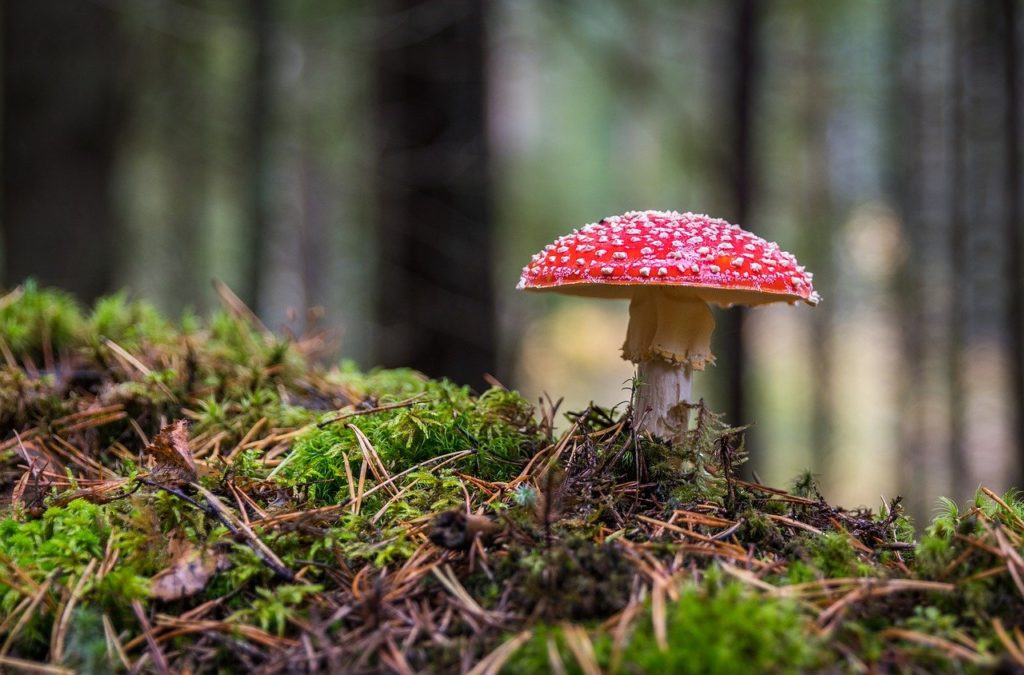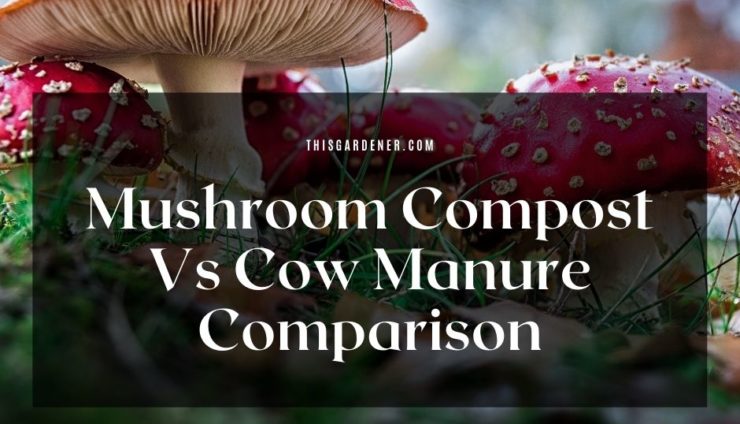Having a garden not only brightens up the home, but it also saves you funds otherwise spent buying some vegetables. To however keep a healthy garden to plant vegetables, your soil needs to also be healthy. Newbie gardeners are sometimes stuck at choosing between compost and manure. In this piece, we’ll share our thoughts about choosing between either of the two.
In this article, we’ll be reviewing
- What differentiates compost and manure?
- Pros and cons of Mushroom Compost
- The pros and cons of Cow Manure
- Which is better?
Contents
Mushroom Compost vs Cow Manure: What Are The Differences?
Compost is organic material that is already decomposed to provide necessary nutrients to the soil and also decrease wastage of food. Generally, composting is easy to carry out, but animal products are not encouraged as they might take time to decompose, unlike plant products like mushroom compost.
Manure, on the other hand, is animal waste that can be used to fertilize the soil. It gives necessary nutrients like phosphorus, potassium, and nitrogen. Again, it’s cost-effective and free of any pollution; it also helps to kill weeds that might affect plant growth.
Pros and Cons of Mushroom Compost
Mushroom compost is organic and a great choice for your garden soil because it is easy to find. There are different mushroom types, and each has a method of composting; it usually takes up to four weeks to successfully compost mushrooms, and once the process is complete, whatever is left can serve as a fertilizer for your soil. There are some pros and cons to using mushroom compost, and some of them are:
Pros of Mushroom Compost
- Affordability: Mushroom compost is relatively easy to find and is also affordable, so you can easily provide your soil with the necessary nutrients at a low price.
- Increases Water-Holding Threshold: Mushroom compost can help your soil to increase its water threshold, which will work to decrease the watering needs of the soil.
- Easy Compatibility: Many garden plants are usually compatible with mushroom compost and will, therefore, save you the stress of looking for a more compatible fertilizer.
Cons of Mushroom Compost
While mushroom compost is a good choice, it isn’t compatible with salt-sensitive plants because of its high salt levels. Seedlings also have a chance of getting affected by the salt level.

Pros and Cons of Cow Manure
The best manure for gardening is cow manure; this is because it is easy to find, and since cows only consume grass, you can find grass and grain in the manure. It is highly nutritious but needs to be combined with lighter materials like straws or ash to lighten it. Some of its pros and cons include:
Pros of Cow Manure
- Environmentally-Friendly: Cow manure produces a low amount of greenhouse gas and is, therefore, the right choice for your garden.
- Promotes Good Bacteria: Cow manure promotes the growth of good bacteria in the soil, which accelerates the absorption of nutrients into the soil.
- Improves Soil Ventilation: Apart from its nutrient-rich feature, it also improves the ventilation for your plant.
Cons of Cow Manure
Although they offer many benefits to the soil, it also encourages the growth of pathogenic bacteria in the soil and comes with a high level of ammonia that could be dangerous to your plants.
Mushroom Compost vs Cow Manure: Which is Better?
Both are really great choices for your soil and comes with many beneficial nutrients that could help grow healthy plants and increase the soil water-holding capacity. However, the best choice would be mushroom compost because of the simple composting process. You can however choose to go for the cow manure to enjoy the nutrients it contains. Your preferred choice should be based on the cost and how easily accessible it is.
- How to Get Potatoes to Sprout Eyes: Detailed Growing Guide with 3 Options - July 31, 2023
- Weight of a Medium Potato: Revealed in Detailed Guide - July 29, 2023
- Maris Piper Potatoes: 9 Substitutes You Should Know About - July 27, 2023
Hello! I’m Jessica Zander, a garden coach and consultant based in the Boston area (zone 6b), offering virtual consultations across the country and Canada.
I’ve been passionate about gardening since the early 1990s, and in 2022, I launched You Can Do It Gardening to empower individuals to feel more confident in their gardening endeavors.
Following a 30-year career in nonprofit finance and operations, I transitioned out of that field in mid-June of 2023 due to the growing demand for coaching services. Interestingly, my years of presenting financial statements to boards and finance committees proved to be valuable experience for teaching people about gardening! I enjoy sharing skills, providing guidance and suggestions, and collaborating efficiently with clients to make significant improvements to their outdoor spaces, both small and large. I also regularly teach at the Arlington Continuing Education and Cambridge Adult Education.
My approach is direct and practical, akin to Mary Poppins, but tailored to your garden. Clients find satisfaction in saving money and taking pride in their own gardening achievements.


Add comment